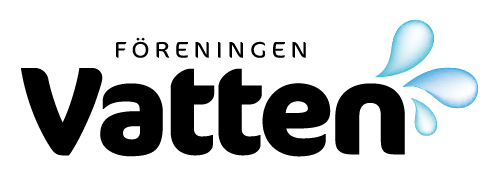Ledare, I blickpunkten, Föreningsmeddelanden, Litteratur, Konferenser, Företagsinformation och Pressreleaser.
Årgång
2006
Nummer
1
Utgåva
The Urban Water programme (www.urbanwater.org) has been a long-term integrated research programme including senior researchers and PhD students from 9 Swedish universities.The central question was whether future sustainable water and wastewater systems will be improved versions of today’s, or if there would be radical changes. The programme aimed to develop a “toolbox” for strategic planning. […]
Författare
Per-Arne Malmqvist
Nyckelord (Keyword)
Strategic planning, MCDA, assessment tools, integrated assessment, sustainable urban water
management
Årgång
2006
Nummer
1
Utgåva
Microalgae can be used for tertiary treatment of wastewater due to their capacity to assimilate nutrients. The pH increase which is mediated by the growing algae also induces phosphorus precipitation and ammonia stripping to the air, and may in addition act disinfecting on the wastewater. Domestic wastewater is ideal for algal growth since it contains […]
Författare
Karin Larsdotter
Nyckelord (Keyword)
Microalgae, wastewater treatment, phosphorus, nitrogen, light, operation, ponds, growth
Årgång
2006
Nummer
1
Utgåva
Stormwater is known to be a potentially large contributor of toxic substances to receiving waters. To be able to model scenarios related to abatement strategies and quality source control, i.e. reducing the pollutants at the source, a substance flow modelling tool has been developed. The computer model is called SEWSYS and themodelling framework incorporates generation […]
Författare
Stefan Ahlman
Nyckelord (Keyword)
heavy metals, nutrients, pollution load, pollution sources, source control, stormwater, substance
flow modelling
Årgång
2006
Nummer
1
Utgåva
In working towards a sustainable society, recycling and recovery of products together with handling of scarce resources must be considered. The growing quantities of sludge from wastewater treatment plants and the increasingly stringent restrictions on landfilling and on agricultural use of sludge are promoting other disposal alternatives. Sludge fractionation, providing sludge volume reduction, product recovery […]
Författare
Kristina Stark
Nyckelord (Keyword)
Ash, phosphorus release, phosphorous recovery, sludge fractionation, supercritical water oxidation,
sustainable sludge handling
Årgång
2006
Nummer
1
Utgåva
In this study, an aeration volume control strategy for an activated sludge process is evaluated in a pilot plant at Hammarby Sjöstad in Stockholm, Sweden. The main idea has been to let the DO concentration in some of the aerated compartments be determined by the DO concentration in other compartments. In this way only sensors […]
Författare
Mats Ekman and Berndt Björlenius
Nyckelord (Keyword)
automatic control, activated sludge process, aeration, volume control, cascade control, DO setpoints,
nitrogen removal, energy consumption.
Årgång
2006
Nummer
1
Utgåva
Waterworks in Sweden that apply conventional surface water treatment are facing several challenges, including changes in raw water quality and demands for improved particle removal. Studies were conducted to evaluate conventional treatment and alternative process combinations with ultrafiltration, nanofiltration, and biologicalpre-filtration. In pilot-scale experiments, the removal of natural organic matter (NOM), particles, taste and odour […]
Författare
Gerald Heinicke och Frank Persson
Nyckelord (Keyword)
biofiltration, conventional treatment, surface water, nanofiltration (NF), microbial barrier, natural
organic matter (NOM), particle removal, taste and odour, ultrafiltration (UF), variability
Årgång
2006
Nummer
1
Utgåva
Recycling of the plant nutrients in sewage to productive land is a long-term goal set up by the Swedish society. In particular, recycling of phosphorus is considered important. To highlight recycling system from an agricultural perspective, a doctoral project was initiated with the objective to analyse environmental and resource aspects forsystems recycling wastewater nutrients to […]
Författare
Pernilla Tidåker och Håkan Jönsson
Nyckelord (Keyword)
agriculture, environmental systems analysis, LCA, life cycle assessment, on-site systems, plant
nutrients, recycling, source-separation, sustainability, wastewater systems
Årgång
2006
Nummer
1
Utgåva
We analysed household water consumption and -expense in a multi-residential area with and without individual metering and volumetric billing using statistical and qualitative methods. On aggregate, households consumed less hot and cold water with individual metering and volumetric billing than before, but in general there were no sweeping routine changes. High-consuming households decreased consumption the […]
Författare
Mattias Hjerpe och Helena Krantz
Nyckelord (Keyword)
households, individual metering and volumetric billing, costs, practical recommendations, water use
Årgång
2006
Nummer
1
Utgåva
During heavy rainfall and combined sewer overflow events, a lot of pathogenic microorganisms are released into our waterbodies. To be able to calculate the health risks properly, it is important to know the source of the contamination. While zoonoses such as Campylobacter, Cryptosporidium and enterohaemmorragic E. coli (EHEC) can be spread from animals to humans, […]
Författare
Jakob R Ottoson
Nyckelord (Keyword)
MST, animal, human, faecal, pollution, wastewater, typing
Årgång
2006
Nummer
1
Utgåva
